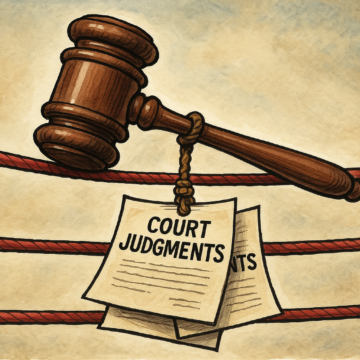Authors: Justice Alexander Osei Tutu & Victor Anku-Tsede Esq. Abstract In the recent unreported case of Gyedu Frimpong & 4 Ors. v. Joana Gyan Cudjoe & 2 Ors.[1], His Lordship Kulendi JSC, sitting as a single judge of the Supreme Court, held that a statement of case not filed contemporaneously with an affidavit supporting an...
Author: Justice Alexander Osei Tutu (Justice Alexander Osei Tutu)
Land Registration in Ghana: A Tale of Multiple Registration Regimes
Introduction Ghana’s land registration landscape is a complex tapestry woven from colonial legacy, post-independence reforms and customary practices. The Land Act, 2020 (Act 1036) currently introduces multiple regimes for land registration comprising deeds registration, title registration and customary law registration. Essentially, each regime has its own sets of rules, procedures, and implications for landowners and...
Revalidating Customary Law: The New Era of Good Title In Ghana’s Land Act
Introduction On the Republic Day last year, 2024, the topic, ‘The Clash of Two Legal Cultures” was deliberately chosen to emphasize how the common law sought to systematically “extinguish” customary law, but our indigenous law prevailed. As we celebrate another Republic Day on Tuesday, we have no option but to pause and reflect on our...
Court Judgments on the Ropes: Unintended Consequences of the Land Act
Introduction The Land Act, 2020 (Act 1036) of Ghana was enacted on the 23rd day of December 2020 to streamline land tenure system, enhance land administration and promote efficient land management. At its inception, the Act was gladly received by most Ghanaians. Not many would question if it was classified as one of the well-thought-out and...
The Moral Nuances of Adverse Possession in Ghana
“If property is indeed a relationship of socially approved control over a valued resource, it has become quite clear that in the Britain of the 21st century, adverse possession of land is a form of control which is no longer socially approved.”[1] Introduction The crux of property law of almost every legal system is adverse possession,...
Adverse Possession: A Modern Outlook
Introduction Land ownership and possessory rights have always been contentious issues for land law practitioners, and the concept of adverse possession adds a new layer of complexity to these old-age issues. In the words of one researcher, “It would appear that in the arena of problematic doctrines of law, adverse possession carries the trophy in...
Nullity Nullified: The Poisoned Tree Can Now Bear Healthy Fruits
Introduction If an act is a nullity, in the eyes of the law, it is treated as if it never existed. At common law, the act is automatically void with or without an order of a court setting it aside.[1] In the locus classicus of Mosi v. Bagyina,[2] Akufo Addo JSC (as he then was),...
To Adopt or Not to Adopt in Civil Cases: The New Judge’s Dilemma
Introduction All too soon, the legal vacation has ended paving way for another busy legal year, in tandem with the tradition of our vocation. More often than not, the commencement of every legal year is characterized by the transfer of judges and judicial staff to new courts. The 2024 legal year, presumably, will not defy...
Capacity: A Fundamental Concept Suffering From Conflicting Notions
Introduction In 2008, His Lordship Anin Yeboah J.A. (as he then was) in the case of The Republic v. The Arbitration Committee of Mampong Gyase Council, Ex parte Opanin Kofi Twumasi,[1] expressed his admiration for the state of the law on capacity and warned against introducing new vistas into the concept thus: [T]he issue of...
Right to Sue on Behalf of The Family: Settled Principles & Unsettling Surprises
Introduction The principle was laid down long ago under customary law that in matters affecting family property, it is the head of the family who can sue and be sued.[1] During the colonial days, white judges who applied the customary law, propounded that despite the rule, an ordinary member of the family may be authorized...











